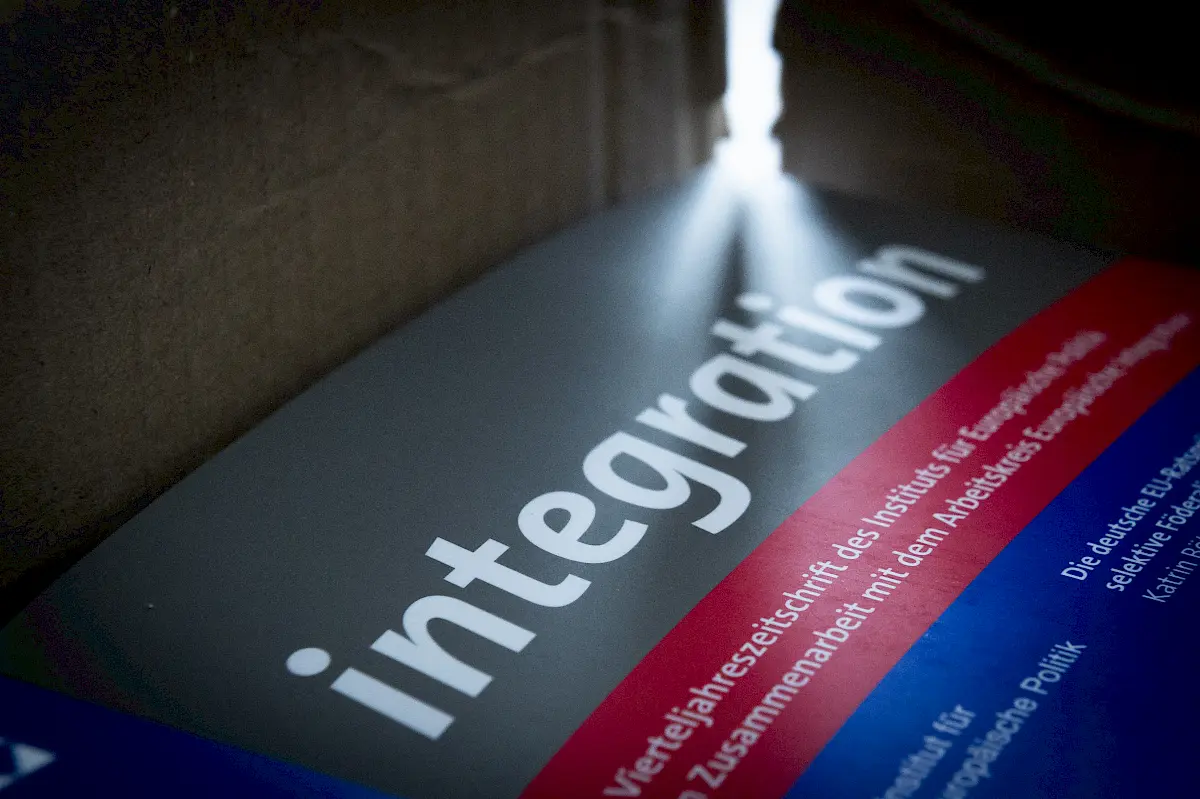Johannes Pollak’s contribution is dealing with the topic of energy security and explains the area of tension between market liberalisation, security concerns and climate policy in which European energy policy operates. In their article, Johannes Kohls and Funda Tekin analyse what can be learned from the European elections regarding European party systems, which transformation processes are underway and what that means for European integration. Ingeborg Tömmel examines the goals, modes of governance and effects of the EU’s regional and cohesion policy, with the conclusion that the support does not always reach the desired targets, mainly due to excessive complexity. Michèle Knodt reports from the annual colloquium of the AEI 2019 on the same topic. In his forum article, Henrik von Homeyer states that the EU needs a new strategy on Russia and explains why a deep understanding of Russian interests and realistic objectives are crucial. Susann Heinecke also looks to the East, recommending a new, holistic communication strategy for EU-Central Asia relations and formulating concrete recommendations for it. Antonia Labitzky and Manuel Müller summarise the contents and the takeaways of the 11th German-Nordic-Baltic Forum in Tallinn, which looked back on the eventful year 2019 in terms of European policy.
Europe’s Energy Security: Between Market Building, Interdependence and Strategic Challenges
Johannes Pollak
The attempts of the European Union (EU) to create energy security have always oscillated between a strong liberal market approach and a more security oriented one. The former builds on the principles of a single market for energy products to the advantage of the consumer while the latter treats energy as a commodity best understood as a strategic good, i.e. a national commodity. Recently, this dichotomy has been joined by concerns over the devastating effects of CO2 emissions and the resulting global warming. The challenges the EU is facing can hardly be underestimated: decreasing its dependence on Russian imports without destabilizing its Eastern neighbour, convincing the member states of the advantages of a stronger cooperation in the energy field, creating a joint energy vision, establishing a resilient infrastructure for energy supply within and beyond the EU’s borders, and fulfilling the objectives of the Paris Agreement, to name but a few. This contribution sheds light on the concept of energy security and discusses the current state of Europe’s energy security.
Transformation Processes in the European Party Systems and their Consequences for the Future of the European Union
Johannes Kohls and Funda Tekin
Transformation processes at both the political and societal level are decisive factors for the future integration process of the European Union. Among the member states, highly variable causes for change are evident and particularly the inclusion-exclusion cleavage stands out. In addition, the pan-European crises of recent years have proved to be catalysts for the transformation of European societies and party systems, which is also being driven forward by new communication structures. Although the European elections themselves did not turn out to be an “earthquake” for the European integration process, they do make it more difficult to find a majority and form a government. The campaign themes that shaped the 2019 European elections have proved to be diverse. Environmental and climate policy does not count among the crucial issues for the elections across Europe.
EU Regional and Cohesion Policy: Financial Support to the Benefit of Citizens or Joker in the Integration Process?
Ingeborg Tömmel
This article questions whether and to what extent the European Union’s (EU) regional and cohesion policy benefits the supported regions and particularly their citizens. It highlights three dimensions of the European policy: its goals, its modes of governance, and its impacts. The analysis leads to the following results: the goals of the European policy are overly complex as they are formed by too many, partly contradictory interests. There exists a gap between the modern, process-based governance modes of the EU and the traditional, top-down steering mechanisms in the member states, resulting in manifold frictions between the government levels. The impacts of this policy at best partly benefit the citizens. The article concludes with some recommendations for reform for both the European and the member state level.
Yurts, Terrorists, Oil and Gas – Elements of a Central Asia Communication Strategy
Susann Heinecke
In view of the limited perception of Central Asia by the European public and the increasing importance of the region for Europe, the article outlines a communication strategy for the future promotion of Central Asia in Europe. The aim is to provide stakeholders of EU-Central Asia relations in politics, education, science, economy and society with recommendations on how they can contribute to a better understanding of Central Asia in the European public. The strategy develops a possible common narrative of Central Asia and suggests concrete measures for the relevant stakeholders.
No Time to Relax – How a New EU Russia Strategy should look like
Henrik von Homeyer
After years of crisis, 2019 has witnessed possible signs for a thaw in the relations between the European Union (EU) and Russia. The strongest proponent of a rapprochement between the two actors is the French President Emmanuel Macron. He believes that European sovereignty and security can only be secured together with Russia. His proposal, however, demonstrates a lack of understanding for the causes of the crisis in the relationship as well as for Russian foreign policy interests and motives. Yet, his call for a new EU Russia strategy is important and timely. This new strategy must take Russian interests into account as well as build on European interests and realistic goals.
Conferences
Im Angesicht neuer Bedrohungen: Herausforderungen für die europäische Innen- und Außenpolitik
Antonia Labitzky and Manuel Müller
Arbeitskreis Europäische Integration
Die Zukunft der Regional- und Kohäsionspolitik zwischen regionaler Unterstützung und Rechtsstaatskonditionalität
Michèle Knodt
Downloads & sources
Team & authors
 Share publication
Share publication










